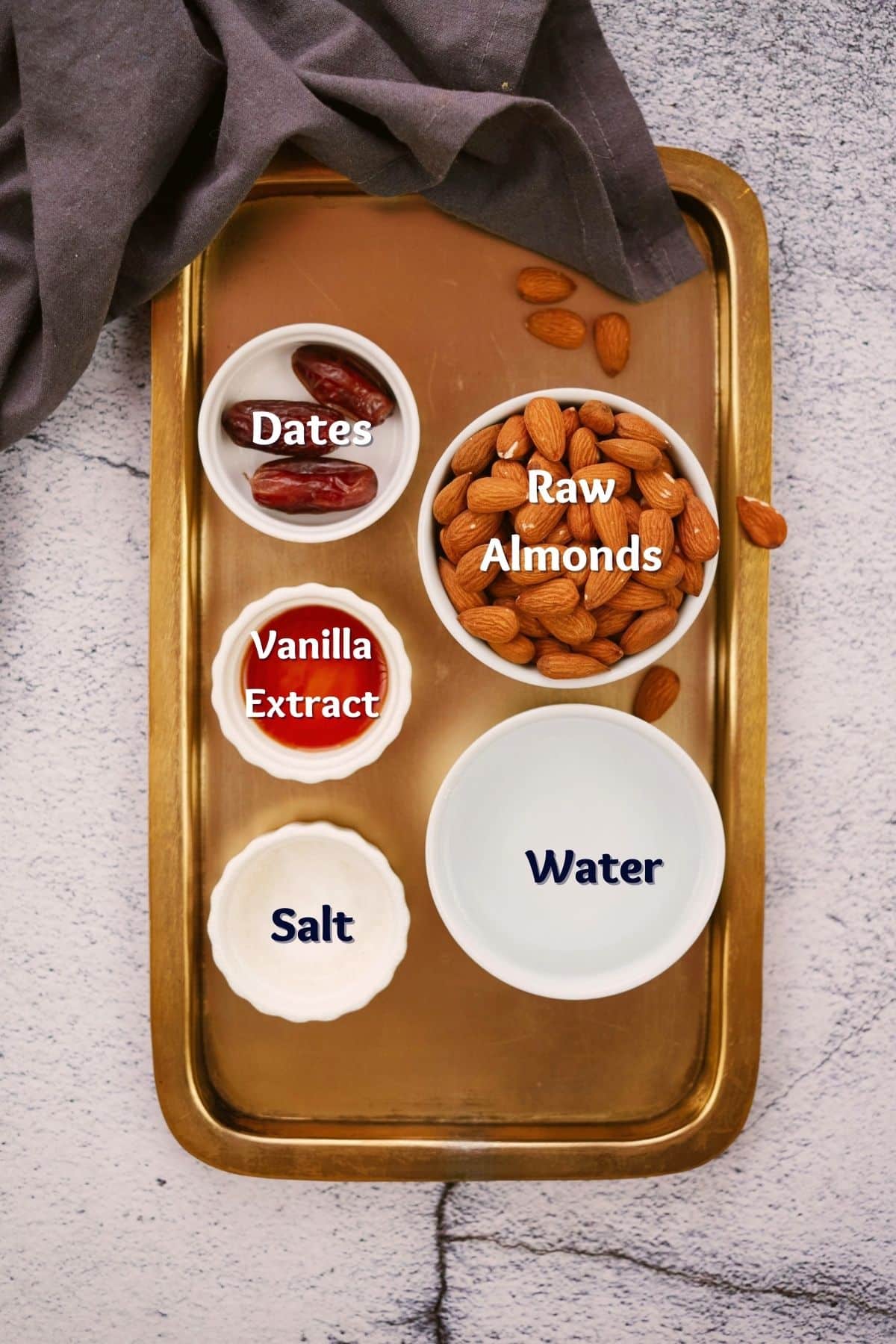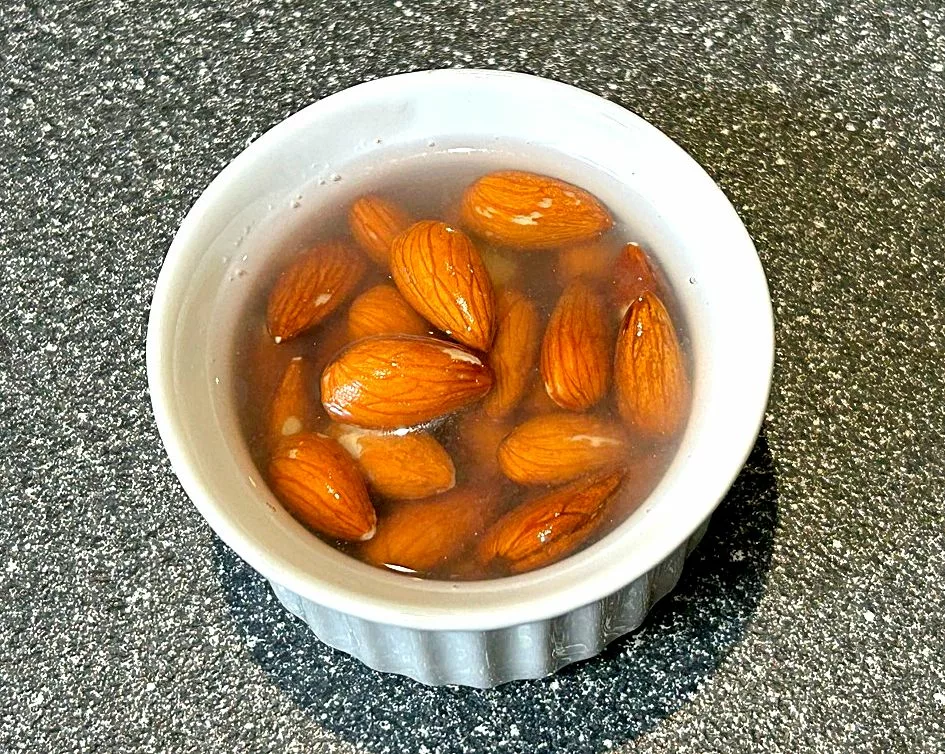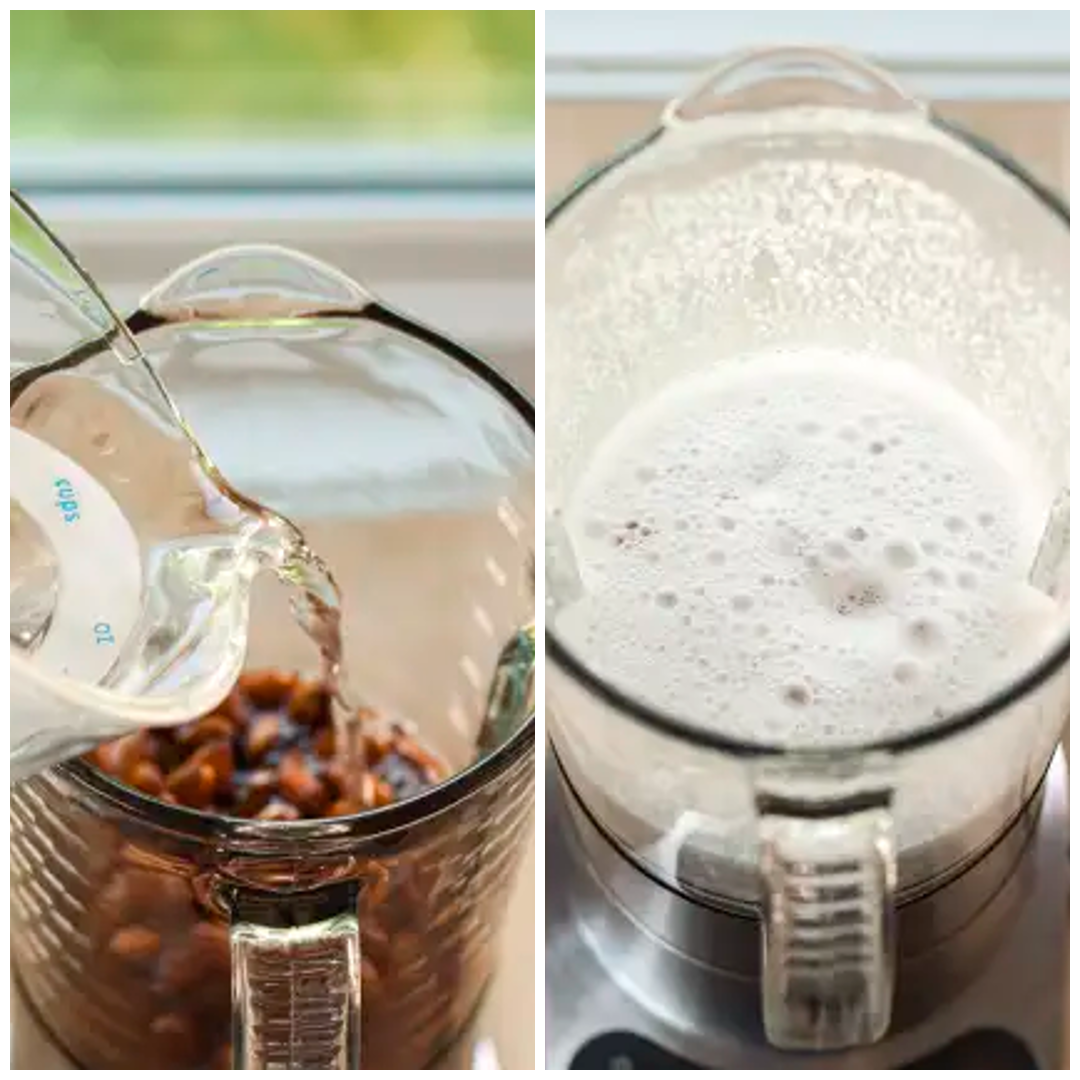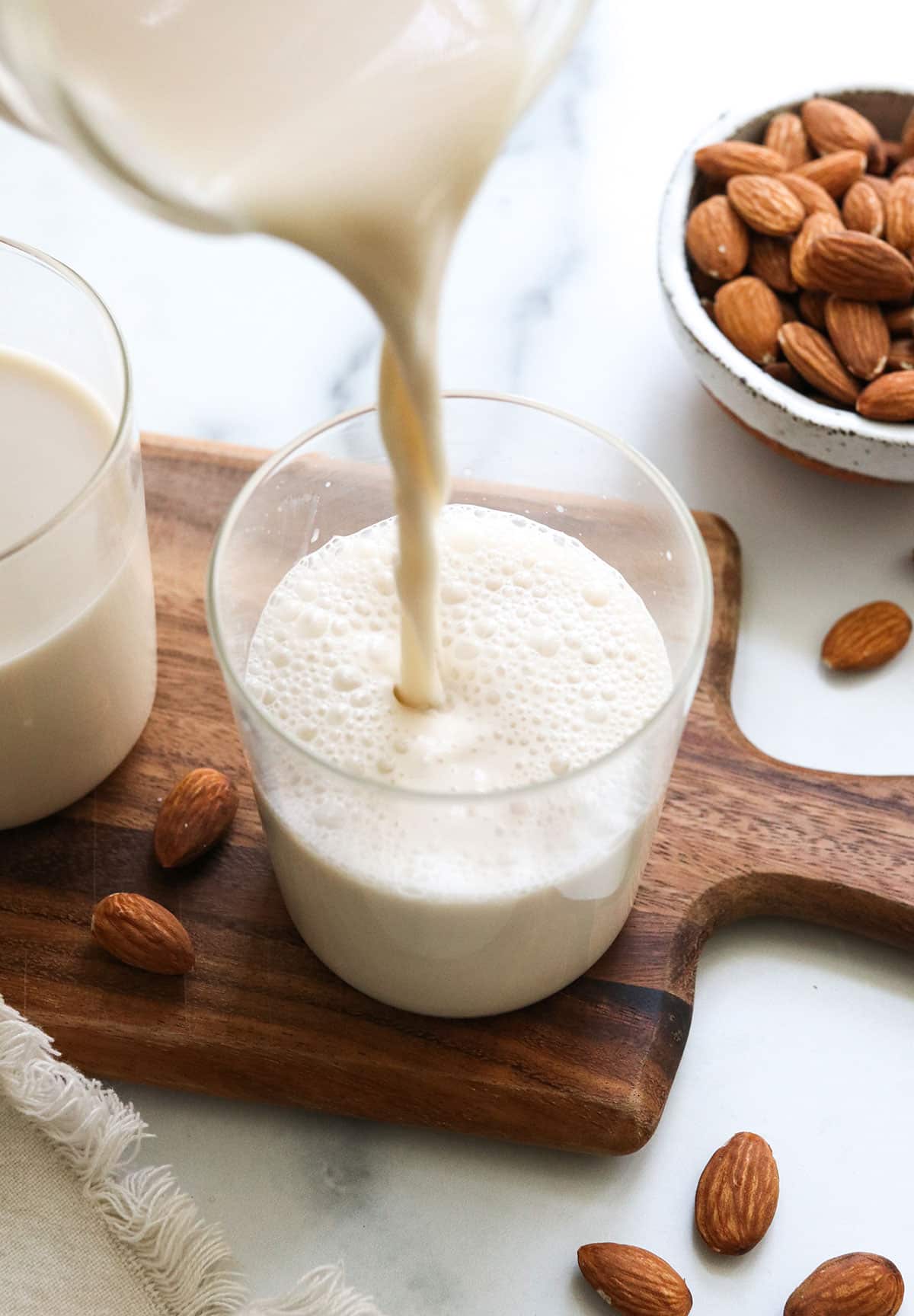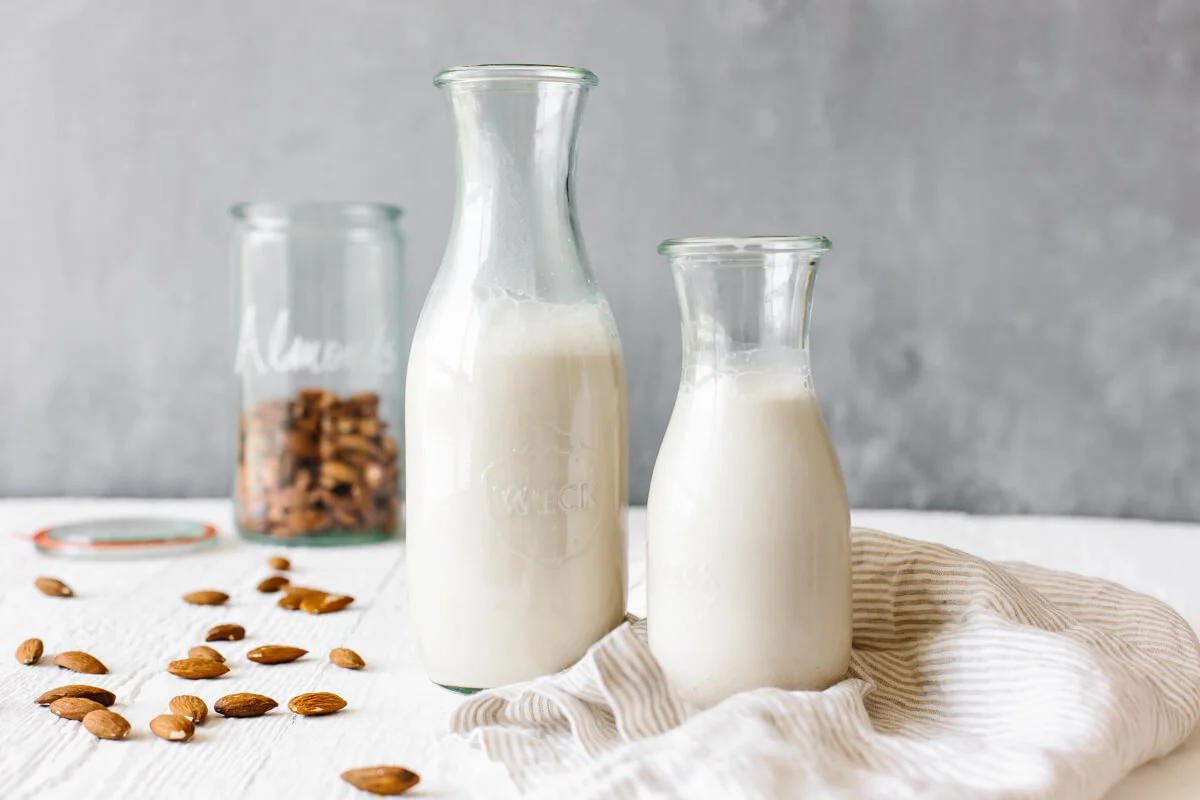
Almond milk is a creamy, dairy-free alternative beloved for its mild, nutty flavor and versatility.
Although store-bought almond milk is convenient, making it at home is simple, satisfying, and allows you to avoid additives commonly found in commercial varieties.
Homemade almond milk is fresher and more customizable, letting you adjust flavor, sweetness, and texture to your liking.
Let’s explore how you can make delicious almond milk right at home, with easy-to-follow steps, tips, and creative ways to enjoy it.
A Brief History Of Almond Milk
Almond milk has a rich history that goes back centuries. In medieval Europe, it was often used as a milk substitute on fasting days and became popular in French cooking as a base for delicate desserts.
Today, almond milk’s popularity has surged globally, becoming a staple in plant-based diets and a preferred choice for those with dairy sensitivities.
Why Make Almond Milk At Home?
Health Benefits Of Homemade Almond Milk
Making almond milk yourself offers several health benefits:
- No Additives: Skip preservatives, stabilizers, and added sugars that are common in store-bought options.
- Higher Almond Content: Homemade almond milk can have a higher almond-to-water ratio, maximizing nutritional benefits like vitamin E, antioxidants, and healthy fats.
Customizable Flavor And Texture
Tailor almond milk to suit your personal tastes:
- Adjust Thickness: Modify the almond-to-water ratio for thicker or lighter milk.
- Sweeten Naturally: Use dates, honey, or maple syrupfor natural sweetness.
- Add Flavor: Try vanilla, cinnamon, cocoa powder, or berries for unique flavor options.
Environmental Benefits
Making almond milk at home helps reduce packaging waste and your environmental footprint. Buying almonds in bulk minimizes waste even further, making this a more sustainable option than single-use cartons.
Related: Peanut Butter Pumpkin Blondies - Sweet, Soft, Chewy Recipe
Essential Ingredients & Equipment
To make almond milk, you’ll need:
Ingredients For Homemade Almond Milk
- Raw Almonds: Use high-quality, organic almonds for the best flavor and nutrients.
- Filtered Water: Ensures a pure, fresh taste.
- Optional Sweeteners and Flavorings: Popular choices include dates, maple syrup, vanilla extract, and cocoa powder.
Tools To Make Almond Milk
- Blender or Food Processor: A high-powered blender produces smoother milk, but a food processor works well, creating a slightly thicker texture.
- Nut Milk Bag or Cheesecloth: For straining almond pulp.
- Storage Container: Airtight glass jars help keep almond milk fresh in the fridge.
Step-by-Step Guide To Making Almond Milk
Step 1: Soak The Almonds
Soaking softens the almonds, making them easier to blend and resulting in creamier milk. Place 1 cup of almonds in a bowl, cover with water, and let soak overnight or up to 2 days for maximum creaminess. Drain and rinse before blending.
Step 2: Blend The Almonds And Water
Add soaked almonds to a blender with 4 cups of fresh water. Blend on high for 1–2 minutes or until the mixture is creamy. If using a food processor, blend for about 4 minutes, pausing to scrape down the sides.
Step 3: Strain The Mixture
Place a nut milk bag or cheeseclothover a large bowl. Pour the almond blend through the bag, gather the edges, and squeeze to extract the milk. This step ensures a smooth, pulp-free texture.
Step 4: Flavor And Sweeten (Optional)
Return the strained almond milk to the blender. If desired, add natural sweeteners or flavors like dates or vanilla extract, blending briefly to incorporate.
Step 5: Store Properly
Transfer the almond milk to an airtight container and refrigerate. It will keep for 4–5 days. Shake before each use, as separation is natural.
For visual representation, watch this video:
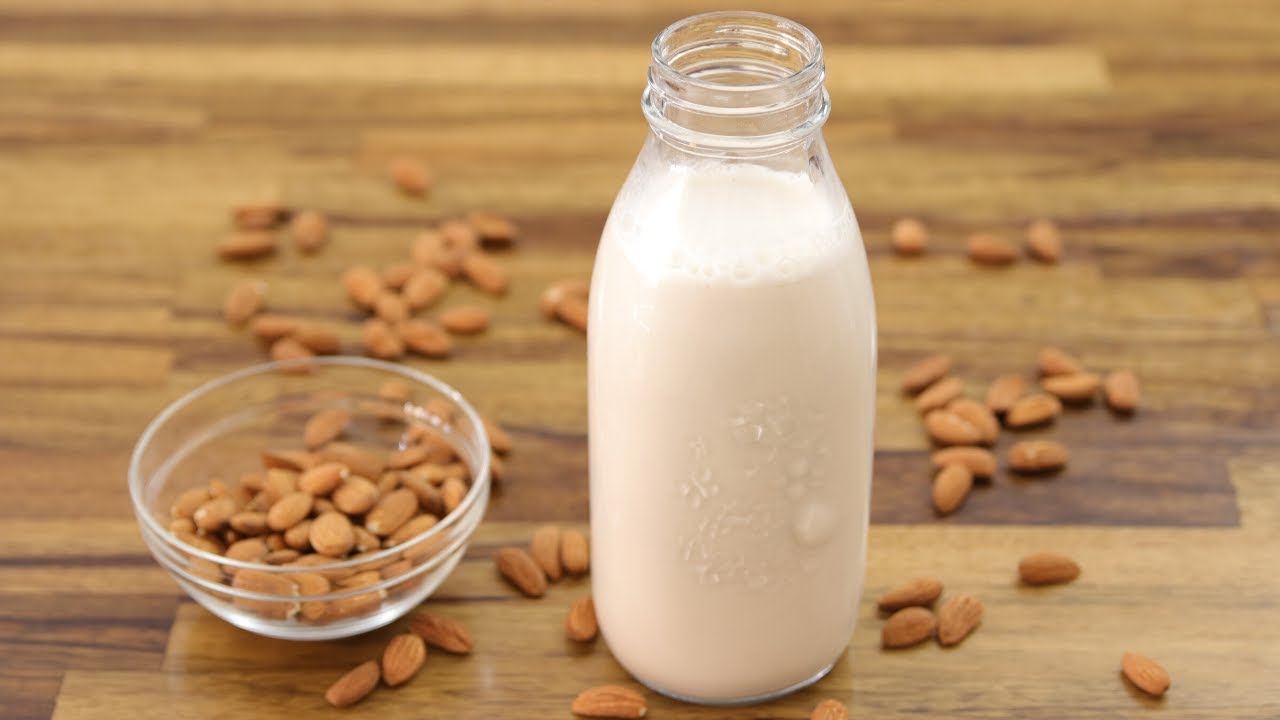
How to Make Almond Milk | Homemade Almond Milk Recipe
Tips For The Perfect Almond Milk
Consistency Control
Adjust the almond-to-water ratio:
- Thicker Milk: Use 3 cups of water per 1 cup of almonds.
- Lighter Milk: Use up to 5 cups of water per 1 cup of almonds.
Blender Vs. Food Processor
Blenders yield a silkier milk, while food processors may leave a slight texture. Test both methods to see which you prefer.
Common Issues & Fixes
- Watery Texture: Try using less water or soaking almonds longer.
- Separation: Shake or stir before use—this is natural due to the lack of stabilizers.
- Grittiness: Blend longer or strain twice if needed for a smoother consistency.
See Also: How To Make Dairy-Free Cream - 10 Simple Recipes For Every Dish
Nutritional Benefits Of Almond Milk
Almond milk is low in calories and packed with antioxidants, particularly vitamin E, which supports skin health and immune function. As a lactose-free, vegan option, it’s suitable for many diets and is lighter than dairy milk, making it great for weight management.
Nutritional Comparison:
| Type | Nutritional Information (per cup) |
| Homemade Almond Milk | Calories: 40–50, Protein: 1g, Fat: 3g, Vitamin E: High, Calcium: Moderate |
| Store-Bought Almond Milk | Calories: 30–40, Protein: 1g, Fat: 2.5g, Vitamin E: Moderate, Calcium: Fortified |
| Dairy Milk | Calories: 150, Protein: 8g, Fat: 8g, Vitamin E: Low, Calcium: High |
Creative Ways To Use Almond Milk
Homemade almond milk is highly versatile. Here are a few ideas:
- Smoothies: Blend it with bananas, berries, or mango for a nutritious drink.
- Lattes and Coffees: Try it in a matcha latte or coffee for a creamy alternative.
- Baking: Use it in pancakes, muffins, or cakes as a dairy-free substitute.
- Breakfasts: Pour over granola, cereal, or use in oatmeal.
Repurposing Almond Pulp
Don’t waste the leftover almond pulp! Here’s how to make the most of it:
- Add to Oatmeal or Smoothies: Stir it into oatmeal or blend into smoothies for fiber and texture.
- Bake into Crackers: Combine with seasonings and bake for homemade almond crackers.
- Make Almond Meal: Dry in a low oven, then pulse to create almond meal, a great addition to baked goods.
Also Read: Delicious Cadbury Mini Egg Cookie Bars - Quick & Easy Recipe
FAQs About Homemade Almond Milk
How Long Does Homemade Almond Milk Last?
Homemade almond milk typically lasts 4–5 days in the fridge. Using sterilized containers may extend its freshness.
What’s The Best Almond-to-water Ratio?
A 1:4 ratio (1 cup almonds to 4 cups water) is standard, but adjust based on your thickness preference.
Can You Use Other Nuts To Make Milk?
Yes! Cashews, hazelnuts, and macadamias work well as milk alternatives, each offering unique flavors.
Why Does Homemade Almond Milk Separate?
Separation is natural because homemade almond milk lacks stabilizers. Simply shake before drinking.
Conclusion
Homemade almond milk is a simple, satisfying process that allows you to enjoy fresh, customized milk free from additives.
Try adding your favorite flavors, using the almond pulp in creative recipes, and sharing your almond milk creations with friends and family.
For those who love experimenting, don’t hesitate to tag us online with your almond milk photos for a chance to be featured!
